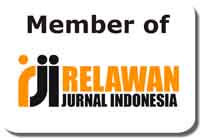The Correlation Between Performances Among Lexical-Related Tasks and The Performance in The Sentence Construction Task
Abstract
Keywords
Full Text:
PDFReferences
Aschenbrenner, A. J., & Yap, M. J. (2019). The influence of relatedness proportion on the joint relationship among word frequency, stimulus quality, and semantic priming in the lexical decision task. Quarterly Journal of Experimental Psychology. https://doi.org/10.1177/1747021819845317
Avneon, M., & Lamy, D. (2019). Do semantic priming and retrieval of stimulus-response associations depend on conscious perception? Consciousness and Cognition. https://doi.org/10.1016/j.concog.2019.01.010
Awwad, A., & Tavakoli, P. (2019). Task complexity, language proficiency and working memory: Interaction effects on second language speech performance. International Review of Applied Linguistics in Language Teaching. https://doi.org/https://doi.org/10.1515/iral-2018-0378
Blott, L., Rodd, J., Ferreira, F., & Warren, J. (2020). Recovery from misinterpretations during online sentence processing. Journal of Experimental Psychology: Learning, Memory, and Cognition. https://doi.org/10.31234/osf.io/3ejqy
Chersoni, E., Santus, E., Pannitto, L., Lenci, A., Blache, P., & Huang, C. R. (2019). A structured distributional model of sentence meaning and processing. Natural Language Engineering. https://doi.org/10.1017/S1351324919000214
Choi, W., Tong, X., & Singh, L. (2017). From lexical tone to lexical stress: A cross-language mediation model for cantonese children learning English as a second language. Frontiers in Psychology. https://doi.org/10.3389/fpsyg.2017.00492
Dóczi, B. (2019). An Overview of Conceptual Models and Theories of Lexical Representation in the Mental Lexicon. In The Routledge Handbook of Vocabulary Studies. https://doi.org/10.4324/9780429291586-4
Dye, C., Kedar, Y., & Lust, B. (2019). From lexical to functional categories: New foundations for the study of language development. First Language. https://doi.org/10.1177/0142723718809175
Entel, O., & Tzelgov, J. (2019). When Working Memory Meets Control in the Stroop Effect. Journal of Experimental Psychology: Learning Memory and Cognition. https://doi.org/10.1037/xlm0000790
Feeny, G. T., & Tucker, B. V. (2019). Emotion and Lexical Effects in an Auditory Lexical Decision Task With Vocal Affect. Education and Research Archive University of Alberta. https://doi.org/https://doi.org/10.7939/r3-fn84-db59
Gebril, A., & Plakans, L. (2016). Source-based tasks in academic writing assessment: Lexical diversity, textual borrowing and proficiency. Journal of English for Academic Purposes. https://doi.org/10.1016/j.jeap.2016.10.001
González-fernández, B., & Schmitt, N. (2020). Word Knowledge: Exploring the Relationships and Order of Acquisition of Vocabulary Knowledge Components. Applied Linguistics. https://doi.org/10.1093/applin/amy057
Harald Baayen, R., Chuang, Y. Y., Shafaei-Bajestan, E., & Blevins, J. P. (2019). The Discriminative Lexicon: A Unified Computational Model for the Lexicon and Lexical Processing in Comprehension and Production Grounded Not in (De)Composition but in Linear Discriminative Learning. Complexity. https://doi.org/10.1155/2019/4895891
Harker, B., Leung, M., Fonseca, D., Halfyard, S., Sinclair, M., & May, S. (2019). Massive Auditory Lexical Decision : Investigating Performance in Noisy Environments. Education and Research Archive University of Alberta, 2–5. https://doi.org/https://doi.org/10.7939/r3-hrnv-sn79
Harvey, D. Y., Traut, H. J., & Middleton, E. L. (2019). Semantic interference in speech error production in a randomised continuous naming task: evidence from aphasia. Language, Cognition and Neuroscience. https://doi.org/10.1080/23273798.2018.1501500
Ji, Y. (2019). Chapter 10. Linguistic and mental representations of caused motion in Chinese and English children. https://doi.org/10.1075/hcp.67.12ji
Jiang, N. (2018). Second Language Processing: An Introduction. Taylor & Francis. https://books.google.co.id/books?id=-xZSDwAAQBAJ
Juhasz, B. J., Yap, M. J., Raoul, A., & Kaye, M. (2019). A further examination of word frequency and age-of-acquisition effects in English lexical decision task performance: The role of frequency trajectory. Journal of Experimental Psychology: Learning Memory and Cognition. https://doi.org/10.1037/xlm0000564
KIM, M., CROSSLEY, S. A., & KYLE, K. (2017). Lexical Sophistication as a Multidimensional Phenomenon: Relations to Second Language Lexical Proficiency, Development, and Writing Quality. The Modern Language Journal, 102(1), 120–141. https://doi.org/10.1111/modl.12447
Kyle, K., & Crossley, S. (2016). The relationship between lexical sophistication and independent and source-based writing. Journal of Second Language Writing. https://doi.org/10.1016/j.jslw.2016.10.003
Maldei, T., Koole, S. L., & Baumann, N. (2019). Listening to your intuition in the face of distraction: Effects of taxing working memory on accuracy and bias of intuitive judgments of semantic coherence. Cognition. https://doi.org/10.1016/j.cognition.2019.05.012
Masrai, A. (2019). Exploring the impact of individual differences in aural vocabulary knowledge, written vocabulary knowledge and working memory capacity on explaining L2 learners’ listening comprehension. Applied Linguistics Review. https://doi.org/10.1515/applirev-2018-0106
McKeown, M. G. (2019). Effective Vocabulary Instruction Fosters Knowing Words, Using Words, and Understanding How Words Work. Language, Speech, and Hearing Services in Schools, 50(4), 466–476. https://doi.org/10.1044/2019_LSHSS-VOIA-18-0126
Murteira, A., Sowman, P. F., & Nickels, L. (2019). Taking action in hand: effects of gesture observation on action verb naming. Language, Cognition and Neuroscience. https://doi.org/10.1080/23273798.2018.1552978
Ng, S., Payne, B. R., Liu, X., Anderson, C. J., Federmeier, K. D., & Stine-Morrow, E. A. L. (2020). Execution of Lexical and Conceptual Processes in Sentence Comprehension among Adult Readers as a Function of Literacy Skill. Scientific Studies of Reading, 24(4), 338–355. https://doi.org/10.1080/10888438.2019.1671849
Oseki, Y., Yang, C., & Marantz, A. (2019). Modeling Hierarchical Syntactic Structures in Morphological Processing. https://doi.org/10.18653/v1/w19-2905
Rebecca Gilbert, Matthew Davis, M. Gareth Gaskell, & Jennifer Rodd. (2019). Sentence structure and listening task affect the retuning of lexical-semantic representations. https://doi.org/10.31234/osf.io/qvaud
Sauval, K., Perre, L., & Casalis, S. (2018). Phonemic feature involvement in lexical access in grades 3 and 5: Evidence from visual and auditory lexical decision tasks. Acta Psychologica. https://doi.org/10.1016/j.actpsy.2017.12.002
Schmitt, N., & Schmitt, D. (2020). Vocabulary in Language Teaching. Cambridge University Press. https://books.google.co.id/books?id=jILoDwAAQBAJ
Sun, J., Wang, S., Zhang, J., & Zong, C. (2019). Towards Sentence-Level Brain Decoding with Distributed Representations. Proceedings of the AAAI Conference on Artificial Intelligence. https://doi.org/10.1609/aaai.v33i01.33017047
Tohru Matsuo. (2019). Measuring Japanese Learners’ Lexical Accuracy and Fluency Using A Lexical Decision Task. Departmental Bulletin Paper.
Vafaee, P., & Suzuki, Y. (2020). THE RELATIVE SIGNIFICANCE OF SYNTACTIC KNOWLEDGE AND VOCABULARY KNOWLEDGE IN SECOND LANGUAGE LISTENING ABILITY. Studies in Second Language Acquisition, 42(2), 383–410. https://doi.org/10.1017/S0272263119000676
Yanagisawa, A., & Webb, S. (2019). Measuring Depth of Vocabulary Knowledge. The Routledge Handbook of Vocabulary Studies, 371–386. https://doi.org/10.4324/9780429291586-24
Zhang, S., & Zhang, S. (2019). Experimental Study on a Two-string Lexical Decision Task: Non-Words and Words. International Journal of Recent Contributions from Engineering, Science & IT (IJES), 7(4), 77–85. https://onlinejour.journals.publicknowledgeproject.org/index.php/i-jes/article/viewFile/11715/6227
DOI: http://dx.doi.org/10.31332/lkw.v7i1.2362
Copyright (c) 2021 Azwar Abidin

This work is licensed under a Creative Commons Attribution-ShareAlike 4.0 International License.
Langkawi: Journal of The Association for Arabic and English indexed by:



















.png)
.png)

.png)
2.png)








